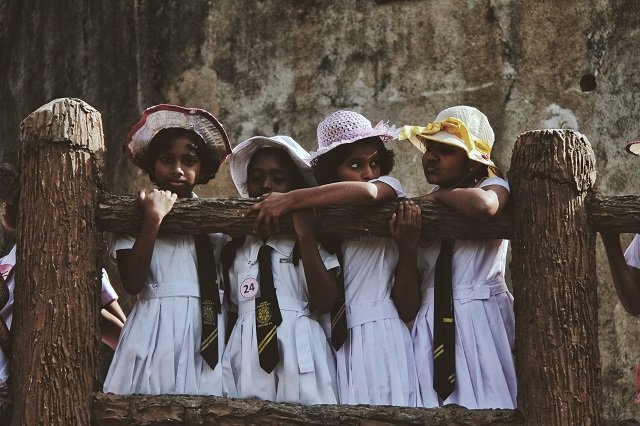While the present issue has not assumed the proportions of some of those mentioned above, an element of judicial activism is evident in the country today.
by Manik De Silva
Deliberately or otherwise, President Ranil Wickremesinghe addressing parliament last week, used two loaded word, “judicial cannibalism,” to describe the supreme court determination on the proposed Gender Equality Bill. Given his wide experience both in executive and parliamentary affairs, he could not have been unaware of the likely, nay inevitable, outcome of his words setting the cat among the canaries. Predictably, a twin outcome ensued with the Bar Association expressing outrage in a hard hitting statement while RW was not without political support. ITAK MP, MA Sumanthiran, PC, who is a respected lawyer adorning the inner bar, provided a voice of moderation saying what the president meant was the instant issue was different from previous interpretations and the matter be sent back to the court for re-determination.
 |
| Sri Lanka Lanka President Ranil Wickremesinghe says his country will not strike a separate debt workout deal with China. (Photo by Shinya Sawai/ Nikkei) |
If we may recapitulate, the president urging the appointment of a parliamentary select committee to go into this matter, said “The Supreme Court has ignored a certain section which the Gender Equality Bill has addressed. It has eaten up all the judgments including one which had been given by a bench of ten judges with regard to women’s rights. It has engaged in judicial cannibalism. The Court has also ignored an amendment to the penal code by the Chief Justice……. I don’t propose to summon judges before Parliament, but I propose that we appoint a majority of members from the Parliamentary Women’s Caucus to the select committee.”
Sri Lanka Lanka is not without experience of conflict between the judiciary and the executive. Few can forget the heady days when President JR Jayewardene said that the only thing he cannot do is to turn a man into a woman and vice versa. He, in 1984, wanted to impeach Neville Samarakoon, his personal choice from the private bar for chief justice, for making a public speech critical of the president and his government at, of all places, a commercial tutory. A year earlier in 1983, Justices Wimalaratne and Colin-Thome of the Supreme Court were brought before a Parliamentary Select Committee based on an allegation made by a person involved in a case heard by the Judges. The Select Committee, while not upholding the personal allegations against the judges, expressed reservations about the verdict and faulted the judges for not allowing the Attorney General to address them on behalf of the State.
In the Samarakoon case, S. Nadesan, QC, appearing for the CJ argued that inquiring into allegations against the Chief Justice was nothing less than the exercise of judicial power. As per the Constitution, judicial power can be exercised directly by Parliament only in relation to parliamentary privileges (which was not relevant to that case). According to the Constitution, in all other instances, Parliament can exercise judicial power only through courts and tribunals . More recently there was the impeachment of Chief Justice Shirani Bandaranayake who was reinstated for a day and retired thereafter following the election of President Sirisena. There was also an attempt to impeach Chief Justice Sarath Silva who post-retirement famously said on a public platform that he sent a man who should have gone to the Hira Gedera (jail) to the Raja Gedera (President’s House).
We cannot also forget Speaker Anura Bandaranaike’s historic ruling of June 2001 when a three judge bench of the Supreme Court issued a stay order restraining the speaker from appointing a Select Committee to inquire into the conduct of the Chief Justice consequent to an impeachment motion against the CJ being forwarded to the speaker. An unprecedented move by the Supreme Court to intervene and interfere with parliamentary proceeding had to be ruled on. Bandaranaike, with the advice of the eminent constitutional lawyer, H.L. de Silva, upheld parliamentary supremacy over the judiciary, in a ruling widely hailed as historic.
While the present issue has not assumed the proportions of some of those mentioned above, an element of judicial activism is evident in the country today. The public perception of these developments are mixed with opinion divided on either side of the fence. Justice Minister Wijeyadasa Rajapaksha, who promotes himself as a candidate for the presidency in the election likely to be held in October, engaged (or indulged) in bashing some bad eggs in the judiciary in parliament last week making some stomach churning ‘revelations.’ He was at pains to say that the conduct of a few tainted the whole judiciary just as some corrupt MPs negatively branded the entire legislature.
The minister who was anointed as acting SLFP chairman by former President Maithripala Sirisena recently has himself been at the receiving end of some adverse judicial determinations. Sirisena made way for Rajapakshe as he himself has been retrained by court from functioning as SLFP leader. There is no escaping the reality that most people in the country avoid the courts like the plague. The laws delays have been endemic over a very long period of time and its effects have encompassed a wide spectrum of litigants. Despite frequently pronounced platitudes no improvement has been seen in the wide picture. It is our fate that a man held guilty of torture has been appointed Inspector General of Police. What kind of cannibalism is that?
Manik De Silva is the Editor of Sunday Island, a Colombo based weekly published by Upali Newspapers Ltd.















Post a Comment